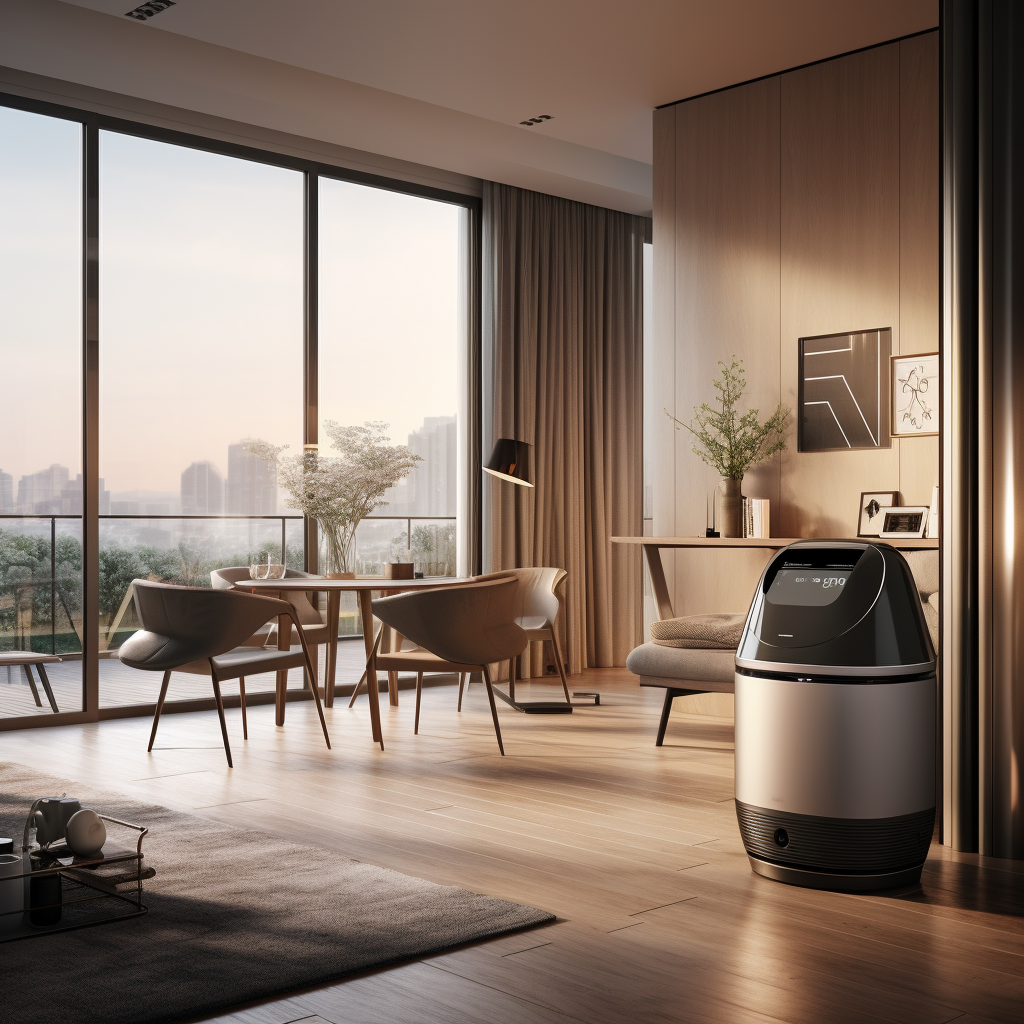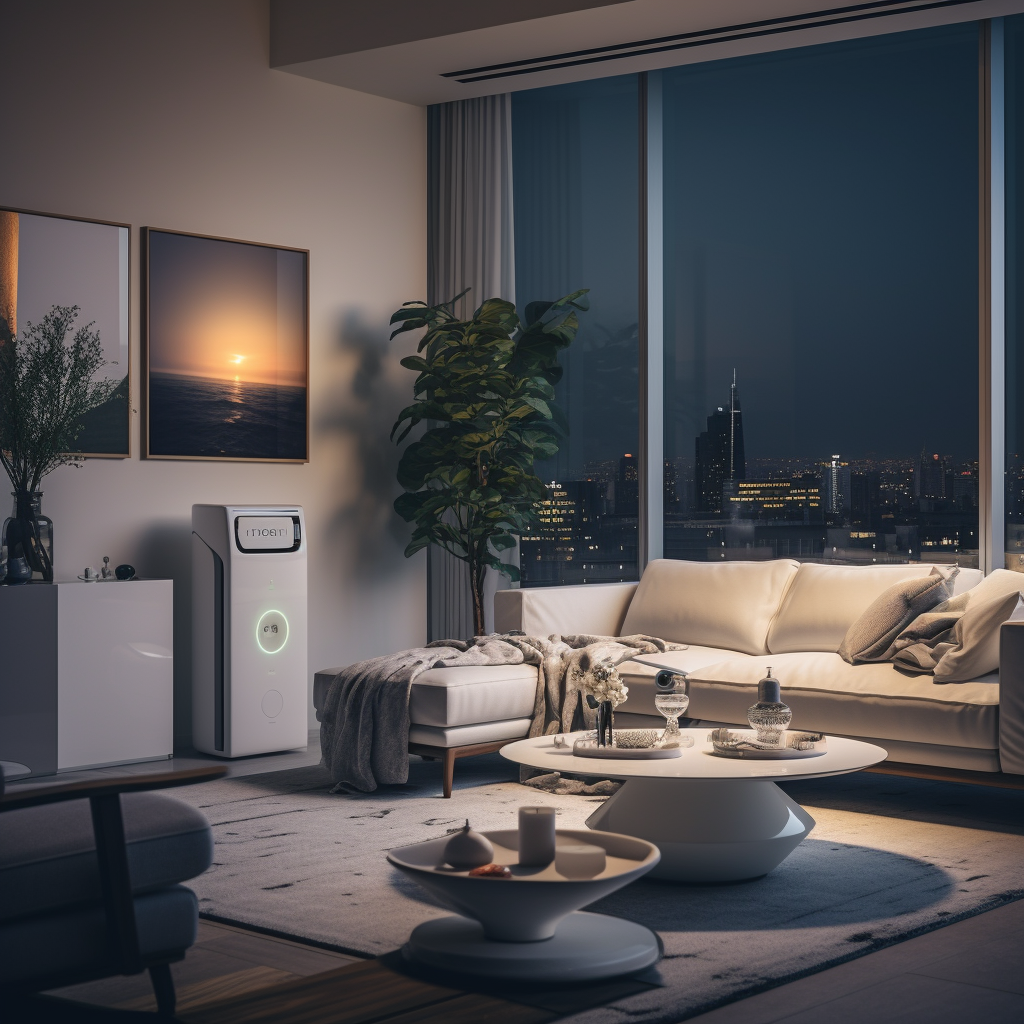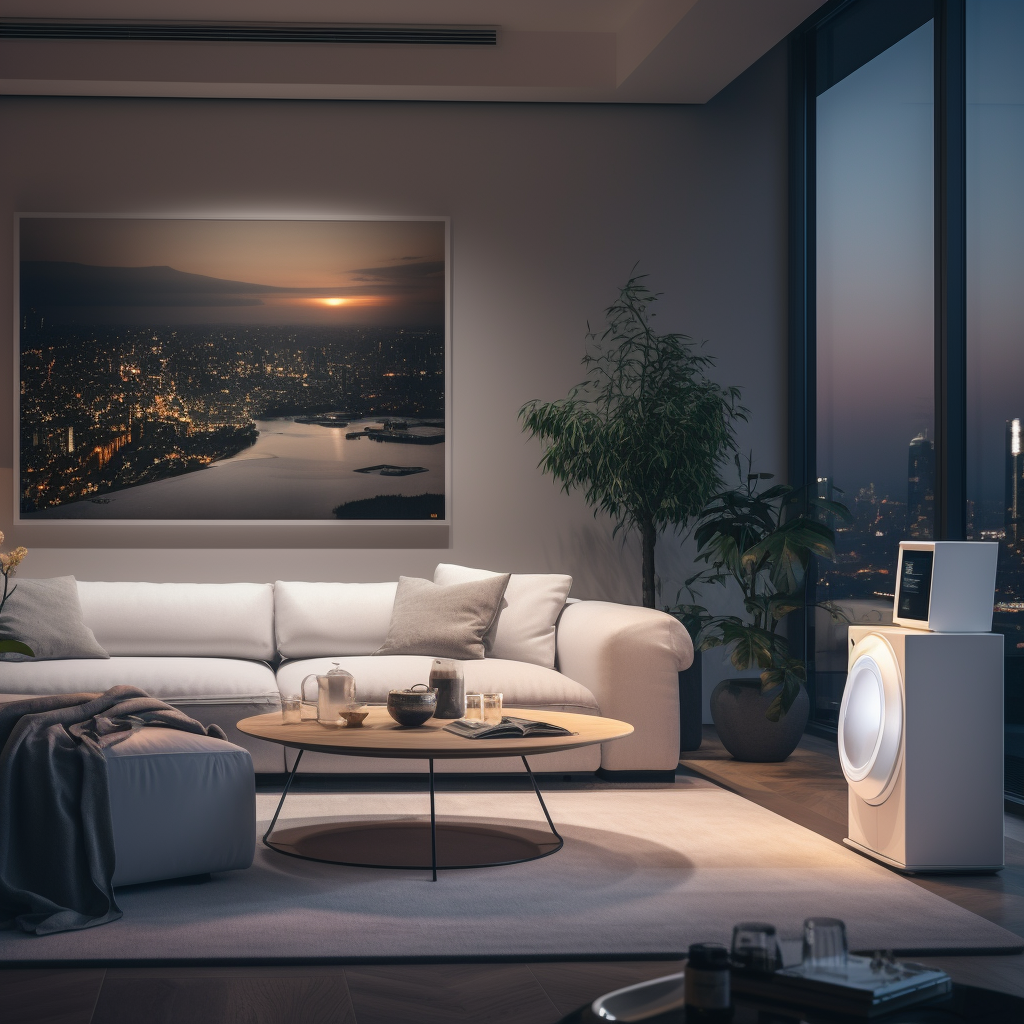Playful Spaces: How to Create the Perfect Space for Your Child’s Bedroom
Your guide to create the perfect playroom for your kids
Dubai is known for being a city whose digital transformation is constant, dynamic and cutting-edge. We love our gadgets that make life easier, from the workplace to ordering our evening meals.
So it’s no surprise that Dubai’s tech-savvy residents love to bring the power of the cloud into their own homes when it comes to making their home work smarter.
The concept of a smart home has evolved rapidly over the past few years, driven by advances in technology and the increasing need for convenience and automation in our daily lives. Today, smart homes are no longer a luxury but have become a mainstream reality. Even if you think your home isn’t smart, chances are you might have lighting that can be programmed through your phone, a voice-activated connection to the Internet (‘Alexa, play my favourite song’).

Smart Home - via Midjourney
Platforms like Amazon Alexa, Google Assistant, and Apple's Siri provide voice-controlled smart home management. You can issue voice commands to control various devices and even set up complex routines.
One of the most significant contributors to this transformation is the proliferation of apps that control and manage various aspects of our homes. From lighting and security to temperature and entertainment, there's an app for everything in the modern smart home! Smart home apps serve as a digital gateway: users interact with and control their apps through smart devices. Whether you want to dim the lights, adjust the AC, or check who's at your front door, you can do it all through your smartphone or tablet.

The most common types of smart home apps fall into several categories:
Home automation apps
These allow you to create routines. For example, you can set your lights to turn on gradually in the morning, your coffee machine to start brewing when you wake up, or your blinds to close at sunset as Dubai’s twinkling city lights light up after dard . Apps like Apple HomeKit, Google Home, and Amazon Alexa provide these capabilities and can connect to a wide range of compatible devices.
Security apps
Security is important for everyone. Apps such as Ring, Nest, and Arlo offer remote monitoring, video doorbell functionality, and alerts for suspicious activity. You can keep an eye on your villa and even communicate with visitors from your phone.
Climate control apps
Smart thermostats like the Nest and Ecobee come with apps that allow you to control your heating and cooling systems remotely. You can set schedules, adjust temperatures, and save energy, all from your smartphone.
Lighting control apps
Smart lighting apps, such as Philips Hue and LIFX, give you the power to customise the ambiance of your home with the touch of a button. Change colours, create scenes, and even sync your lights with music or movies.
Entertainment Apps
Apps like Sonos and Logitech Harmony enable you to control your home entertainment system, including speakers, TVs, and streaming devices, from one central hub.

Smart Home - via Midjourney
Why work hard when you can work smart?
The most obvious advantage of smart apps is convenience. Smart home apps centralise control, eliminating the need to fumble with multiple remotes or switches. With a tap or voice command, you can manage your entire home environment. Apps allow you to optimize energy consumption by creating schedules and automations. For instance, you can set your thermostat to lower the temperature when you're not at home, leading to energy savings.
Meanwhile, security apps provide peace of mind by offering real-time alerts and remote access to your home's security systems.
Today, many smart home apps are designed to work together, enabling seamless integration between different devices and systems. This interconnectedness enhances the overall smart home experience.
For better web experience, please use the website in portrait mode